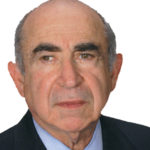Make Sure The Primary Income Earner Is Insured!
We like to feel that we serve a higher purpose than just “selling” a “product” to a client. Individual disability insurance can be multifunctional, in that not only does a qualifying claim provide a replacement of some of one’s income but it can also have extraneous benefits besides a monthly check.
In a traditional family unit there tends to be a primary income earner and usually a non-primary income earner. From our experience, it’s more unusual to have a dual income family with both spouses having similar income. If the primary income earner has a disability, it can affect the whole family in so many ways depending on the actual disability and needs required.
Disabilities tend to come in two different styles, one being a sudden disabling event, such as an accident, stroke, heart attack, etc., that may either permanently disable someone or allow for a recovery in part or full. The other style we tend to see are the more slow types of disabilities that start out with a diagnosis while the person is still able to work but then gets progressively worse over time with a qualifying disability eventually becoming a partial claim and perhaps a total disability. Examples of the more slow, progressive disability would be neurological, such as MS, ALS, Parkinson’s, some cancer and heart disease claims, and some musculoskeletal claims. While the industry may be able to predict morbidity rates, disabilities in themselves are unpredictable in style, duration, and care needed.
Every family has its own routine and the dynamics can be unique to each family. From driving children, to coaching sports, to religious and community activities and work obligations, the family unit can be very busy and fully scheduled. Now put in the mix a disability of any family member. Regardless if it is a physical or mental disability, the family unit now has a different dynamic. Plans get cancelled, the routine gets disrupted, the new normal is anything but normal. If the family member who is disabled is the primary income earner as well, the dynamic may change even more. Not only does the family routine most likely change, there can be financial stress as well. Not only is the primary income earner no longer receiving a paycheck but the secondary income earner, if any, may be affected as well. If there is a secondary income earner spouse, the severity of the disability of the primary income earner may be a catalyst for the secondary income earner’s income to also decrease due to the need to curtail work due to the disruption.
Let’s also look at a single parent family and the responsibilities a single parent has to his or her children. Every single parent needs a plan in place to take care of any children who would need a guardian in case of a disability. If the single parent family is due to a divorce then the plan may be obvious in most situations but can also give rise to another factor often overlooked in separation agreements. As you may already know divorces can be complicated legal procedures, requiring specialists like jennifer croker to help separate finances, insurances, and draw up alimony or child support payments. These payments can be the primary source of income for some single parent households. If the separation agreement doesn’t require disability insurance on the primary income earner spouse, then that single parent family could be in financial risk every day and not realize there may be an issue.
When the primary income earner has an individual disability policy, a qualifying disability will create cash flow coming into the household. This may provide the secondary spouse the flexibility needed to make sure the income being generated between work and a disability policy will provide for the family and still allow a continuum of much of the daily routine to which the family has become accustomed. When the household income drops precipitously, then bills may not be able to be paid and the family’s lifestyle may need a drastic change. For the single parent and/or divorced parent, the income may cease all together, causing even more changes for the family.
No two disabilities or scenarios tend to play out exactly the same. Making sure the primary income earner has individual disability insurance is not only important to the individual that does not yet have a family, but it may be even more crucial for those who support a family.



























